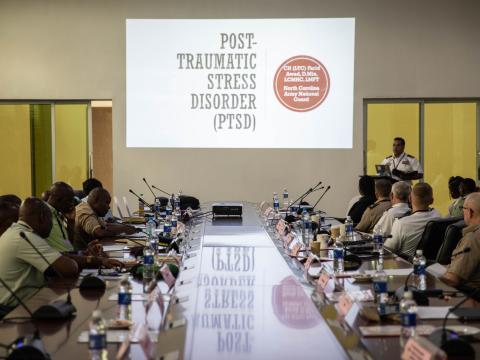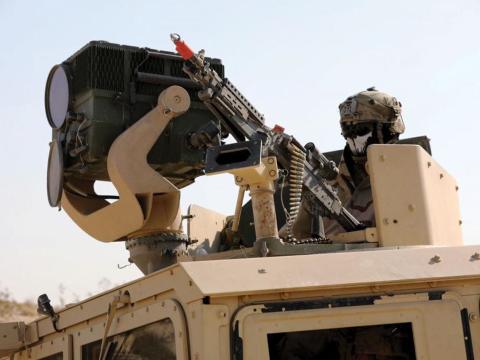From Soldier to Dive Pirate
Two severely injured soldiers are learning to scuba dive thanks to a little help from some dedicated volunteers.
On a (very) hot recent Saturday in a suburb of Tampa, Florida, two soldiers put on their scuba gear and slipped below the water's surface to train for an upcoming journey to another country. Their plan is not to infiltrate hostile territory, recue a hostage nor capture an enemy. No, their goal is to swim under the ocean even though on land they navigate the terrain in wheelchairs.
An organization called Dive Pirates (you can insert your various arrrr and treasure jokes here) makes this possible through a small band of dedicated volunteers with a passion for scuba. The program embraces wounded warriors, offering them a chance to learn to dive and a trip to the Caribbean to become open-water certified at no cost. But more than that, it welcomes them into a community that helps keeps injured warfighters and others who qualify for adaptive scuba in the water.
Dive Pirates works with dive shops around the country to set up support networks for these special-case individuals. The store employees serve different roles such as trainers or buddies and ensure that once Dive Pirates finishes it work, the newly trained divers still have a way to enjoy the sport. Depending on the severity of disability, an adaptive scuba diver needs a certain number of swimming buddies to accompany them for safety. The foundation encourages family members and close friends to act as these buddies whenever possible, adding to total support during the recovery process.
Chris Hull, one of the soldiers I met in Tampa, says his experience so far has been great, and he is taking extra classes to earn additional dive certifications. He suffered his injuries during a car crash on Friday the 13th at exit 13 while on leave and is now a quadriplegic with some ability to move his arms. Hull requires a three-buddy system; his dad and two instructors make up his team. "Scuba is something I always wanted to do," he explained. With the help of Dive Pirates, "There's no reason not to," he added.
Hull's friend Matt Richardson joined him for the pool training. Richardson became a quadriplegic after being shot while on active duty in Iraq after surviving a previous tour in Afghanistan. The two soldiers met through a wheelchair rugby league in Florida and were looking for the next physical challenge. Richardson's injuries are more severe than Hull's, but they haven't stopped him from tackling the opportunities that come his way. He had a chance to dive a little in the Army and said "I love it. There's nothing like just sitting in the water in an environment where you aren't supposed to be."
What's hard to capture in black and white is their spirit. Like most persons with handicaps who feature in news stories, Hull and Richardson have tenacious spirits coupled with wry senses of humor they use to cope with their situations. Richardson referred to one of his damaged limbs by saying, "It's crap." But they also recognize that many in their situation have a hard time recuperating especially mentally and that they must plow through their challenges or stagnate. While easy to say, living with that determination is not so easy to do, but neither soldier seems concerned with easy. To illustrate, taking on scuba has unique challenges for people in their condition. In addition to the expected challenges inherent in diving without use of or sensation in various limbs, most quadriplegics cannot sweat, so staying cool in the sun, or during any physical activity, requires planning.
Despite that fact, both men say that sports have played a major role in their recoveries. And both are happy to be in a program like Dive Pirates that introduces them to a new group of people who support them and share their interest in scuba. Out in the heat that Saturday were two representatives from different dive shops in the Tampa area and multiple volunteers from out of state including a couple who flew in from Las Vegas. All were there to train or assist in various ways. Joking and big talk were primary land activities as the group developed nicknames for the soldiers-cupcake for Hull and Captain Jacked up for Richardson-and the soldiers told the others the tricks they had planned. Someone even brought a bag of Doritos jacked chips for Richardson.
Sophie Wimberley, vice president of Dive Pirates, is enthusiastic at all times about her program. She loves getting adaptive scuba divers in the water, loves creating groups of support and loves seeing how many people are willing to give their time and their money to the effort. One of her main goals is to ensure that donations are used wisely and well; the organization's financials are broken down online so people can see what their money funds.
Wimberley wants to get more people involved as trainers, buddies or adaptive divers and to find other programs to connect with to expand efforts. She also would like to start training another group of people to take over the program when she and her contemporaries are ready to step down. But as those plans develop, focus will remain in making tangible strides with wounded warriors who didn't give up their enthusiasm and courage just because they're no longer on the battlefield.
Note: Dive Pirates is the Homefront Help feature of the week. Read that write-up for more information about the program. The group's leaders are always looking for volunteers and opportunities to expand, so please contact them about any donations or ideas. And if you're a wounded warfighter check out what the program has to offer you.



